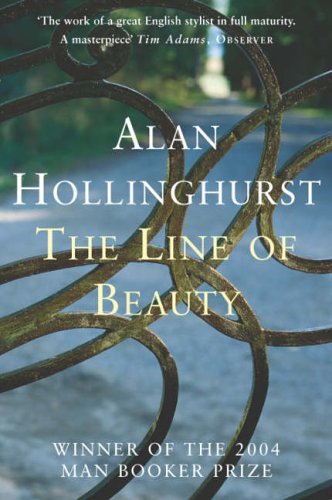Sam
TS Member
Book worms, gather!
*hands reader a cup of tea*
Would you like a seat? Welcome to the warm and cosy virtual library of TST.
Why not tell us about the last book you read and what you thought of it? Also, while you're at it, what's your favourite book? I'll start.

The last book I read was The Line Of Beauty by Alan Hollinghurst.
Although, like all of Hollinghurst's previous novels, it is a book predominantly about gay life and gay themes, it feels more accessible to a straight audience than its spiritual successor, The Swimming Pool Library. Instead of being a gay book for gay people, it's a gay book for everyone. Set in the 1980s, it examines extreme wealth, AIDS, high art, cocaine, romance, casual sex, infidelity, hypocrisy, gay life and Margaret Thatcher. I found it really a very beautiful book, with the main character Nick Guest constantly describing beautiful objects and beautiful people in a way that becomes quite intoxicating, and fills you with a sudden desire to become an high cultured aesthete. Sometimes Nick's experiences fill you with romance, sometimes with anger, sometimes with sadness and despair as you see the world around him gradually fall apart.
I quite liked, as with The Swimming Pool Library, the jarring feeling of Hollinghurst's ability to suddenly switch from, say, describing MPs and Lords dining in a French château with the finest wine, to anonymous gay sex in a public toilet a few pages later. I think an interesting theme of the book is rich people experimenting with low-life culture, and working class life, and how romance, infatuation and unrequited love can destroy class structures. His writing style is wonderful, never awkward or jarring, and his dialogue seems completely natural, even without being familiar with the airs and graces of the super-rich. The characters feel more fleshed-out than his previous work, particularly Tory MP Gerald and his daughter Cat. I would recommend it to anyone, gay or straight, as the book seems to transcend single sexuality appeal and tells us, in quite a gentle way, some really worrying things about our own humanity and compassion for those we see us worse off than us, either financially, culturally or medically.
I guess my favourite book would have to be No Logo by Naomi Klein, and if I had to pick fiction (I tend to prefer non-fiction political books) it'd be Animal Farm or We Need To Talk About Kevin by Lionel Shriver.
*hands reader a cup of tea*
Would you like a seat? Welcome to the warm and cosy virtual library of TST.
Why not tell us about the last book you read and what you thought of it? Also, while you're at it, what's your favourite book? I'll start.

The last book I read was The Line Of Beauty by Alan Hollinghurst.
Although, like all of Hollinghurst's previous novels, it is a book predominantly about gay life and gay themes, it feels more accessible to a straight audience than its spiritual successor, The Swimming Pool Library. Instead of being a gay book for gay people, it's a gay book for everyone. Set in the 1980s, it examines extreme wealth, AIDS, high art, cocaine, romance, casual sex, infidelity, hypocrisy, gay life and Margaret Thatcher. I found it really a very beautiful book, with the main character Nick Guest constantly describing beautiful objects and beautiful people in a way that becomes quite intoxicating, and fills you with a sudden desire to become an high cultured aesthete. Sometimes Nick's experiences fill you with romance, sometimes with anger, sometimes with sadness and despair as you see the world around him gradually fall apart.
I quite liked, as with The Swimming Pool Library, the jarring feeling of Hollinghurst's ability to suddenly switch from, say, describing MPs and Lords dining in a French château with the finest wine, to anonymous gay sex in a public toilet a few pages later. I think an interesting theme of the book is rich people experimenting with low-life culture, and working class life, and how romance, infatuation and unrequited love can destroy class structures. His writing style is wonderful, never awkward or jarring, and his dialogue seems completely natural, even without being familiar with the airs and graces of the super-rich. The characters feel more fleshed-out than his previous work, particularly Tory MP Gerald and his daughter Cat. I would recommend it to anyone, gay or straight, as the book seems to transcend single sexuality appeal and tells us, in quite a gentle way, some really worrying things about our own humanity and compassion for those we see us worse off than us, either financially, culturally or medically.
I guess my favourite book would have to be No Logo by Naomi Klein, and if I had to pick fiction (I tend to prefer non-fiction political books) it'd be Animal Farm or We Need To Talk About Kevin by Lionel Shriver.

